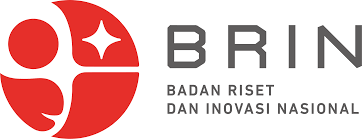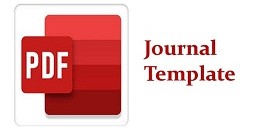The School of Educational Progressivism Philosophy and Its Implementation in the 2013 Curriculum
DOI:
https://doi.org/10.58355/competitive.v3i2.84Keywords:
Educational philosophy, students, 2013 CurriculumAbstract
One of the schools in educational philosophy is the philosophy of progressivism. namely a movement and association founded in 1918 by John Dewey who argued that knowledge that is true today may not be true in the future. Education must be child-centered rather than focused on teachers or specific content areas. According to Progressivism, the curriculum should not be universal but should vary according to the conditions that exist in the child and his environment; adapted to the characteristics of students (interests, talents and needs of each student) or chil centered; community-based; and is flexible and subject to change or revision. This research aims to describe the implementation of the educational progressivism philosophy in the 2013 curriculum. This type of research is qualitative research, the approach is library research. where the data and data sources are taken from the literature, namely by reading, comparing, and concluding from several figures' opinions. The analysis used in this research is content analysis. Based on the results and analysis, it is concluded that the implementation of the philosophy of educational progressivism in the 2013 curriculum, namely learning achievement, pays attention to the cognitive, affective and psychomotor domains. The philosophy of progressivism in its learning uses a scientific approach, namely the process of observing, asking, reasoning, trying, and creating networks.
Downloads
References
Abelia Khoerunnisa, Dea Amelia, & Hanifa Shofuroh. (2024). The Influence of APE on the Emotional Development of Early Childhood. ATTAQWA: Jurnal Pendidikan Islam Dan Anak Usia Dini, 3(1), 36–45. https://doi.org/10.58355/attaqwa.v3i1.74
Abdul Fattah Nasution, Setia Ningsih, Mona Febrica Silva, Leli Suharti, & Jekson Parulian Harahap. (2023). Konsep Dan Implementasi Kurikulum Merdeka. COMPETITIVE: Journal of Education, 2(3), 201–211. https://doi.org/10.58355/competitive.v2i3.37
Achmad Sudaryo. (2023). Dinamika Pendidikan Islam di Indonesia. INTERDISIPLIN: Journal of Qualitative and Quantitative Research, 1(1), 1–9. https://doi.org/10.61166/interdisiplin.v1i1.1
Agustinova, Danu Eko, Penerapan Kurikulum 2013 Pada Mata Pelajaran Sejarah Pada Sekolah Menengah Atas, Jurnal Universitas Negeri Yogyakarta, Volume 4 Nomor 1 tahun 2018
Al-Faris, Fitri, Kurikulum 2013 Dalam Perspektif Filsafat Pendidikan Progresif, (Yogyakarta: Jurnal Filsafat, Vol. 25 No. 2 Agustus 2015)
Anati Rahila, & Khozin. (2024). Holistic Curriculum Development in Islamic Religious Education Institutions in Primary Schools or Madrasah Ibtidaiyah. DIROSAT: Journal of Education, Social Sciences & Humanities, 2(2), 124–129. https://doi.org/10.58355/dirosat.v2i2.67
Fadillah, M, Aliran Progresivisme dalam Pendidikan di Indonesia, (Ponorogo: Jurnal Dimensi Pendidikan dan Pembelajaran Vol. 5 No. 1 Januari 2017),
Farida Ummami, & Khozin. (2024). Sociology as a Basis for Curriculum Development for Islamic Religious Education. HISTORICAL: Journal of History and Social Sciences, 3(1), 62–69. https://doi.org/10.58355/historical.v3i1.103
Hanif, Muh, Tinjauan Filosofis Kurikulum 2013, (Purwokerto: STAIN Purwokerto, 2013)
Knight, George R., 2007, Filsafat Pendidikan-PenerjemahMuhammad Arif, Yogyakarta: Gama Media.
M. Arifin Sitorus. (2024). Pendekatan Peran Orang Tua Di Satuan Pendidikan Anak Usia Dini. Demagogi: Journal of Social Sciences, Economics and Education, 2(1), 12–21. https://doi.org/10.61166/demagogi.v2i1.10
Milyasari, Asmendri, 2020, Penelitian Kepustakaan (Library Research) dalam Penelitian Pendidikan IPA, Natural Science: Jurnal Penelitian Bidang IPA dan Pendidikan IPA 6 (1).
Mualifah, Ilun, Progresivisme Jhon Dewey dan Pendidikan Partisipatif Perspektif Pendidikan Islam, Jurnal Pendidikan Agama Islam Volume 01 Nomor 01 Tahun 2013.
Nandini, Sallima Zarli Lubis, Vira Nabila Hadori, & Maulana Adinata Dalimunthe. (2024). The Influence of Teacher Interpersonal Communication on Students’ Interest in Learning (Case Study of Students at the Private Madrasah Aliyah Plus Al-Ullum School). Maklumat: Journal of Da’wah and Islamic Studies, 2(1), 9–17. https://doi.org/10.61166/maklumat.v2i1.8
Rita Sukaesih, Muhammad Saleh Suhaidy, Muhammad Al Mighwar and Ujang Nurjaman (2022) “VISI PENDIDIKAN BERBASIS AGAMA, FILSAFAT, PSIKOLOGI, DAN SOSIOLOGI”, al-Afkar, Journal For Islamic Studies, 5(1), pp. 87–100. doi: 10.31943/afkarjournal.v5i1.238.
Ruslan, Perspektif Aliran Filsafat Progresivisme Tentang Perkembangan Peserta Didik, JISIP, Vol. 2 No. 2, Juli 2018
Salu, Vega Ricky dan Triyanto, Filsafat Pendidikan Progresivisme dan Implikasinya dalam Pendidikan Seni di Indonesia, Jurnal Imajinasi Vol XI No 1-Januari 2017
Widiyanto, Muhammad Agus, Kurikulum 2013 dalam Perspektif Filsafat Pendidikan Aliran Progresivisme, (Yogyakarta: Fakultas Filsafat Universitas Gajah Mada, 2013).
Widodo, Sembodo Ardi, Pendidikan dalam Perspektif Aliran-Aliran Filsafat, (Jogjakarta: Ide Press, 2015)
Wikandaru, Reno, Aliran Pendidikan Progresivisme dan Kontribusinya Dalam Pengembangan Pendidikan Pancasila di Indonesia Jurnal Ilmiah CIVIS, Volume II, No 1, Januari 2012
Downloads
Published
How to Cite
Issue
Section
License
Copyright (c) 2024 Faelasup

This work is licensed under a Creative Commons Attribution 4.0 International License.















